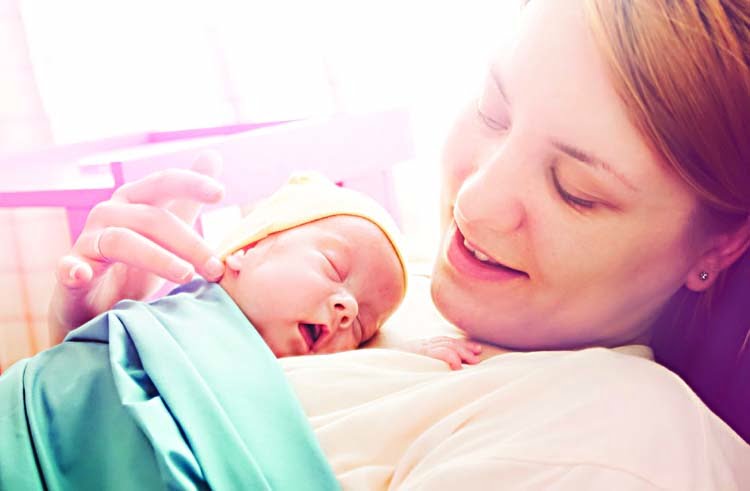How to Take Care Your Premature Baby at Home

Child born prematurely? How To Take care?
About one in three newborns in Bangladesh is born with low birth weight. Repeated pregnancies at short intervals, malnutrition and direct or indirect smoking during pregnancy are largely responsible for this.
What causes pre-mature babies to be born?
♦ Pregnancy at a young age of the mother. Repeated pregnancy at intervals of less than three years, simultaneous delivery of multiple children.
♦ Long-term maternal illnesses, especially high blood pressure (pre-eclampsia), kidney disease, heart disease, UTI and malnutrition.
♦ Direct or indirect smoking, alcohol and other drug addiction during pregnancy.
♦ Fetal chromosomal abnormalities and infections.
♦ Various fetal complications—previa, infection, low birth weight etc.
Physical characteristics
The physical characteristics of a full-term newborn are somewhat different.
Various conditions of pre-mature baby can be observed based on the birth weight. Premature newborns who are born weighing 1000 to 1500 grams are very lean from birth. The neck lies on one side, the arms and legs do not move, the cry is very faint. The weaker his reflexes are. There is no difference between his sleeping and waking states. There is no crying of hunger. At the same time, the ability to eat is also very low.
Compared to that, the muscle movements of newborn babies born between 1500 and 2000 grams are more active. Morose, grasp reflexes remain intact. He is also able to look carefully.
Pre-mature, but newborn babies born with a birth weight of 2000 to 2500 grams have fairly good movement and muscle circulation. They cry like a healthy normal newborn, look alert. Can eat breast milk very well.
Major disadvantages of pre-mature baby
They can suffer from various adverse problems after birth. For example, various types of enzyme immaturity, weakness of respiratory system, kidneys and metabolic functions, various problems in blood components, immune system etc. Sometimes lag behind in the race of physical ability and growth.
The main disadvantages are—
♦ Inability to maintain body temperature.
♦ Difficulty in taking food.
♦ Risk of infection, eg—intestinal infection NEC.
♦ Respiratory problems due to RDS, pneumothorax, apnea etc.
♦ Additional special nutritional requirements including food, minerals.
♦ Certain complications of brain development.
Medical management
Special care should be taken with immature children. Such babies need to be kept in incubators.
Care in the incubator
The need to use ‘incubator’ in the care of these babies is very much, especially if the baby’s weight is less than 2000 grams. This special system maintains the baby’s temperature at the right level, maintains humidity between 40 and 60 percent and supplies oxygen. If an incubator is not provided, some steps should be taken to maintain the baby’s temperature. For example, you can try to keep the house warm by burning radiant heaters and lamps. Other regulations will be determined by the pediatrician.
Feeding method
In general, newborns less than 34 weeks’ gestation do not develop the combination of breathing, sucking, and swallowing. In those cases and very low birth weight infants, with a birth weight of less than 1500 grams, breast feeding should be done through a nasogastric tube. Breast milk is best for pre-mature babies. The pediatrician determines the weight and age of the child. A pediatrician should be consulted if there is even the slightest doubt about the child’s ability to suckle.
What to do to prevent infections
A dangerous issue for the baby at this time is infections. Their immunity is very low. These children, especially in the first month of birth, should be kept away from contact with anyone other than the mother and the mother should take charge of newborn care. Wash your hands thoroughly with soap before touching the baby. The child should be dressed in clean sterile dressings. It is a duty to maintain a clean environment in the house.
Extra vitamins
After two weeks of age, pre-mature babies need some extra vitamins. Notable among these are vitamin ‘D’ and vitamin ‘C’. Infants weighing less than 1500 grams require vitamin E, sometimes continued until the infant’s weight doubles, along with iron syrup.
Follow-up care
The risk of premature newborn survival and brain growth and development depends on gestational age, which can be accurately assessed with prenatal ultrasound. Preterm neonates, especially between 23 and 25 weeks’ gestation, require intensive care unit (NICU) management for several weeks.
In the later period, it is necessary to keep these children under the supervision of a pediatrician and observe whether their growth is going well or not. Scientist Newton’s birth weight was 3 pounds, painter Pablo Picasso also saw the face of the earth long before his time. In other words, with proper care, pre-mature newborns have the potential to become world-class. Special cares for pre-mature baby should be kept in mind-
- Temperature Protection in Kangaroo Mother Care System.
- Breastfeed for full six months.
- Immunization as usual.
- Regular monitoring of child’s growth (cerebral palsy), vision (retinopathy of prematurity), hearing, behavior etc. until the child completes two years.
when is a premature baby out of danger, premature baby care at home, how to hold a premature baby, premature baby care in hospital, keeping premature babies warm at home, premature baby 7 months, immediate care of preterm baby, premature baby 8 months, how to hold a premature baby, premature baby 8 months, nursing care of premature baby, 7 month premature baby development, management of preterm baby, premature baby weight chart by month in kg, premature baby care at home, keeping premature babies warm at home

